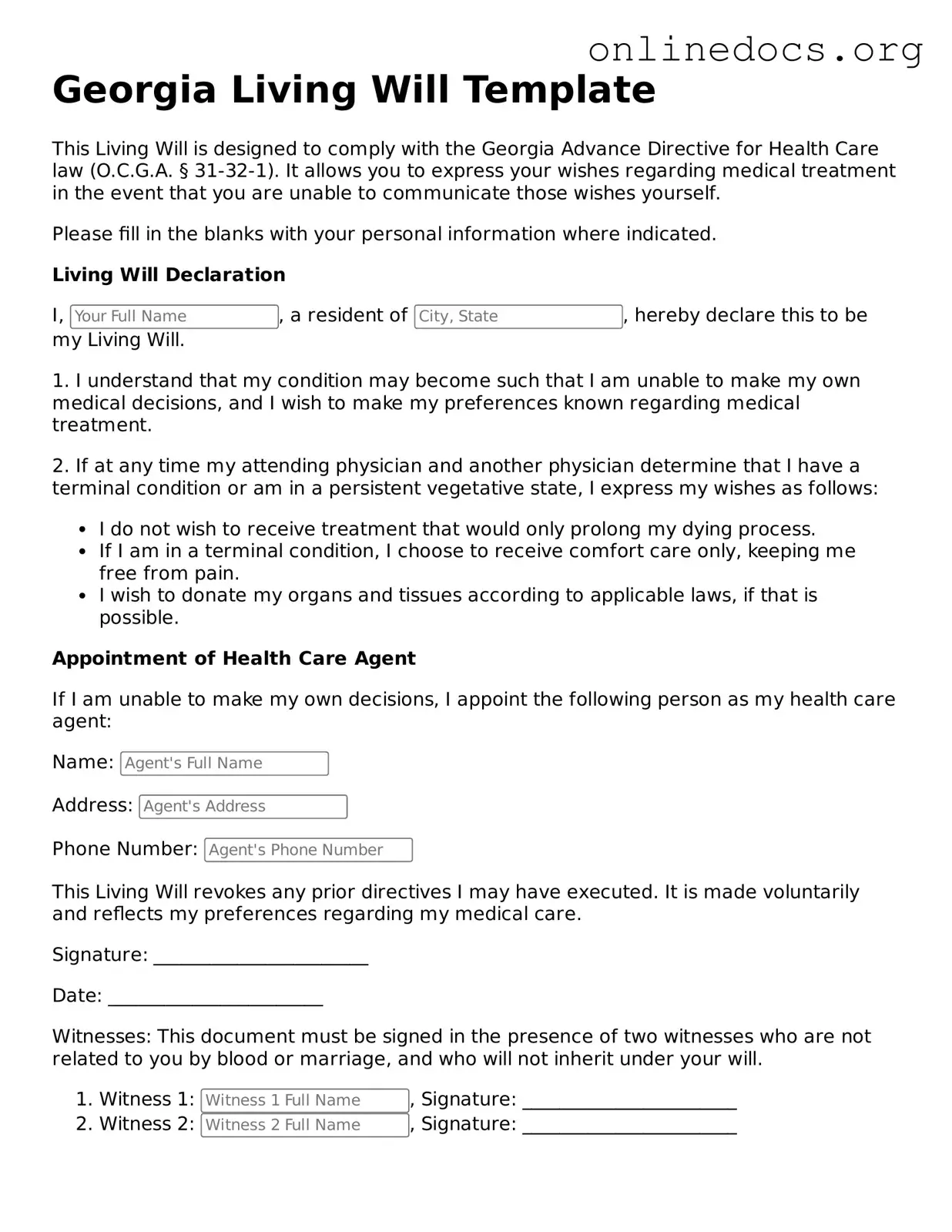The Georgia Living Will form is similar to an Advance Directive for Health Care. Both documents allow individuals to express their medical treatment preferences in advance. They provide guidance to healthcare providers and loved ones in situations where the individual cannot communicate their wishes. While the Living Will focuses specifically on end-of-life decisions, the Advance Directive can also include preferences for other medical treatments and appoint a healthcare agent to make decisions on the individual's behalf.
Another document comparable to the Georgia Living Will is the Durable Power of Attorney for Health Care. This document allows individuals to designate someone to make healthcare decisions for them if they become incapacitated. Like a Living Will, it helps ensure that a person's wishes regarding medical treatment are respected. However, the Durable Power of Attorney is broader, as it can cover a range of health-related decisions beyond just end-of-life care.
The Do Not Resuscitate (DNR) order is also similar to the Living Will. A DNR order specifically instructs healthcare providers not to perform cardiopulmonary resuscitation (CPR) if a person's heart stops or if they stop breathing. While a Living Will addresses various medical scenarios, a DNR focuses solely on resuscitation efforts, making it a critical component of end-of-life care planning.
When considering the various documents that address health care decisions, it is crucial to understand the role of the California Power of Attorney form, which allows one person to grant another the authority to make important choices on their behalf. For more information and to draft this essential document, you can visit https://californiapdfforms.com/power-of-attorney-form.
The Physician Orders for Life-Sustaining Treatment (POLST) form shares similarities with the Living Will. POLST is a medical order that translates a patient's preferences regarding life-sustaining treatments into actionable orders for healthcare providers. While a Living Will outlines wishes in general terms, POLST provides specific medical orders that must be followed by medical personnel, ensuring that a person's preferences are honored in real-time medical situations.
A healthcare proxy is another document akin to the Georgia Living Will. This document allows an individual to appoint someone to make healthcare decisions on their behalf if they are unable to do so. While the Living Will outlines specific treatment preferences, the healthcare proxy empowers the appointed individual to interpret and make decisions based on those preferences, ensuring that the individual's values and wishes are upheld.
The Mental Health Advance Directive is similar in that it allows individuals to outline their preferences regarding mental health treatment. This document can specify treatment options, medications, and preferred healthcare providers, similar to how a Living Will addresses physical health care. Both documents serve to guide medical professionals and family members in making decisions that align with the individual’s wishes during times of crisis.
The organ donation document also bears resemblance to the Living Will. This document allows individuals to express their wishes regarding organ donation after death. While the Living Will focuses on medical treatment preferences during life, both documents address the individual's wishes concerning their body and medical interventions, ensuring that their decisions are respected even after death.
Lastly, the Health Care Directive is comparable to the Georgia Living Will. This document combines elements of both the Living Will and Durable Power of Attorney, allowing individuals to outline their healthcare preferences and appoint a representative. It provides a comprehensive approach to advance care planning, ensuring that all aspects of an individual's healthcare wishes are documented and communicated effectively.
